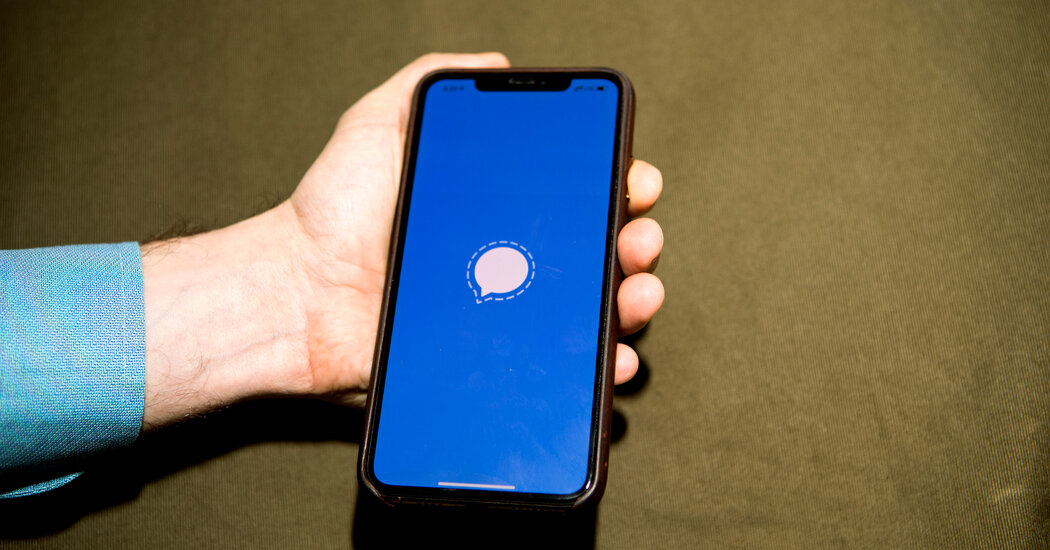Millions Flock to Telegram and Signal as Fears Grow Over Big Tech

“Don’t trust Big tech,” read a message on one Proud Boys group on Parler. “We will need to find safer spaces.”
On Signal, a Florida-based militia group said on Monday that it was organizing its chats in small, city-by-city groups limited to a few dozen people each, according to messages seen by The New York Times. They warned one another not to let in anyone they did not personally know, to avoid law enforcement officials spying on their chats.
The flood of users to Telegram, which is based in Dubai, and Signal, which is based in Silicon Valley, goes far beyond just the American far right. Mr. Durov said that 94 percent of Telegram’s 25 million new users came from Asia, Europe, Latin America, the Middle East and North Africa.
Most of Signal’s new user adoption is coming from outside the United States. As of Wednesday, the company said it was the No. 1 app in 70 countries on iOS devices and in 45 countries on Android devices, with India being one of the biggest areas of new user growth. For both Signal and Telegram, new installations came from users in Indonesia, Mexico, Brazil and dozens of other countries, data from Apptopia shows.
Fears over WhatsApp’s privacy policies have driven Telegram and Signal’s popularity. While there was no meaningful change to how WhatsApp handles users’ data, people immediately interpreted the app’s privacy notification last week to mean that it was infiltrating all kinds of personal information — like personal chat logs and voice calls — and sharing that data with businesses.
WhatsApp quickly said people were mistaken and that it could not see anything inside of encrypted chats and calls. But it was too late.
“The whole world now seems to understand that Facebook is not building apps for them, Facebook is building apps for their data,” said Moxie Marlinspike, the founder and chief executive of Signal. “It took this one small catalyst to push everyone over the edge of making a change.”

Comments are closed.